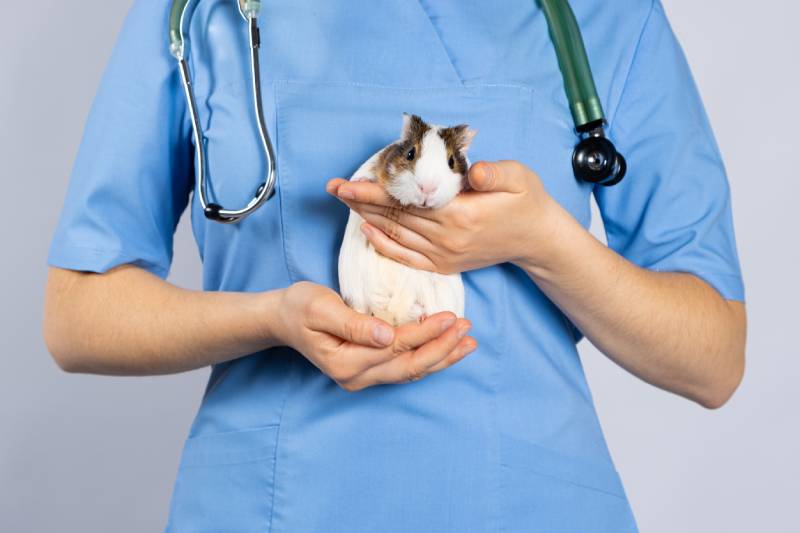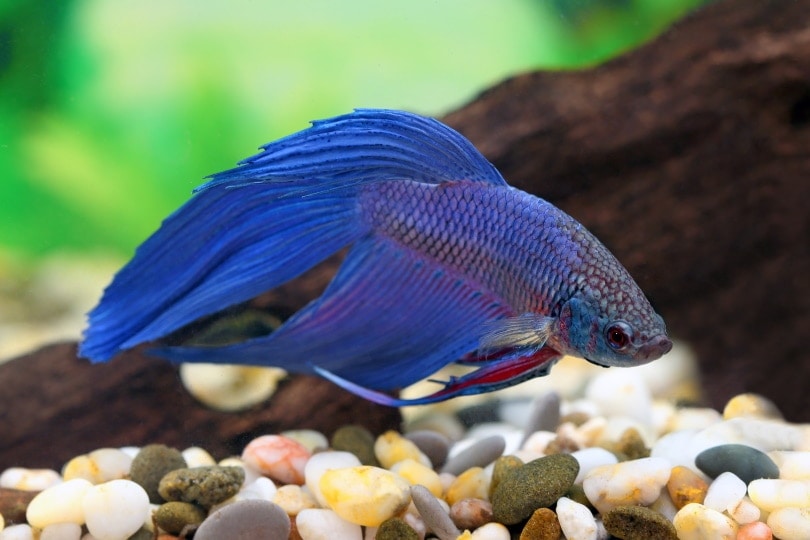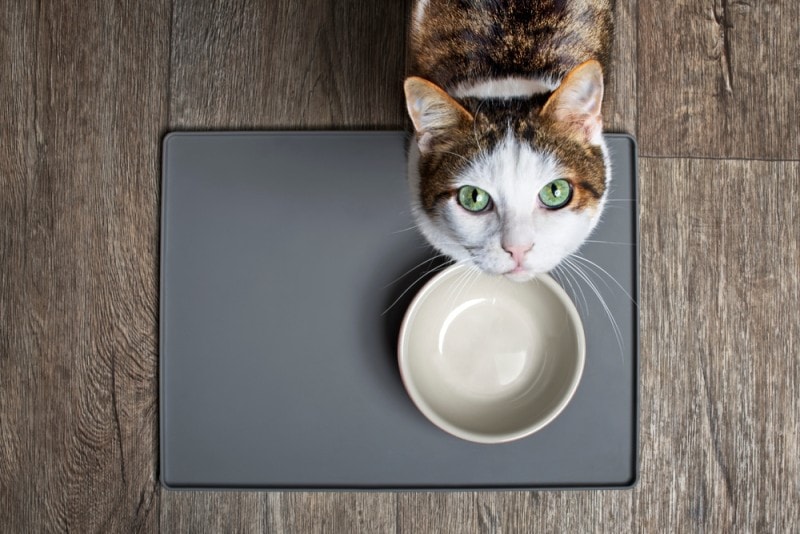My Dog Ate a Rib Bone: Our Vet Explains What to Do

Updated on

Click to Skip Ahead
Almost every dog owner will be familiar with the image of a dog, real or cartoon, with huge bones in their mouth, and wagging their tail. We all know the phrases “Give the dog a bone” or “Like a dog with a bone” and so are led to believe it’s natural for dogs to eat bones. But just how safe are bones for dogs to eat?
Contrary to popular belief, rib bones can actually be very dangerous for dogs. It does depend on the circumstances and if your dog has eaten a whole rib bone, but it is very likely you need to take your dog to the vet straight away. Even if you aren’t 100% sure if your dog ate a whole bone but they have been chewing it, and now bits are missing, you should treat this as a medical emergency.
Clinical Signs Your Dog May Have Eaten a Rib Bone
There are some important clinical signs you need to monitor your dog for if you are suspicious they have eaten a rib bone. If you do see any of these signs, you need to contact your vet immediately to arrange for them to examine your dog.
- Coughing and retching
- Hypersalivation
- Blood from the mouth
- Lethargy
- Loss of appetite
- Vomiting
- Diarrhea
- Abdominal pain
- Adopting the “praying” position
- Constipation
- Blood in feces
- Pale gums
- Collapse
Dogs and Bones
Rib bones are the bones that make up the rib cage. They commonly come from cows, but some ribs are from pigs and are a popular cut of meat, the bones are often piled high on a plate after a successful barbeque. Dogs are always attracted to them as they will be able to smell the remnants of juicy meat.
Even if you have disposed of the bones in a bin or put them outdoors in the trash, dogs have a very strong sense of smell and will still be able to sniff them out. Often, this is how dogs gain access to them, by ripping through bin bags or turning trash cans over.
When eaten by dogs, cooked or raw, these bones can easily splinter. This poses a serious health risk to your dog. Bone fragments and splinters are incredibly sharp and can become lodged in your dog’s gastrointestinal tract. They can perforate the lining and cause septic peritonitis, which is a medical emergency and a life-threatening condition. Beef bones are less likely to splinter compared to smaller animals such as chickens, but the risk is still there, especially with larger breeds of dogs and dogs with strong jaws.
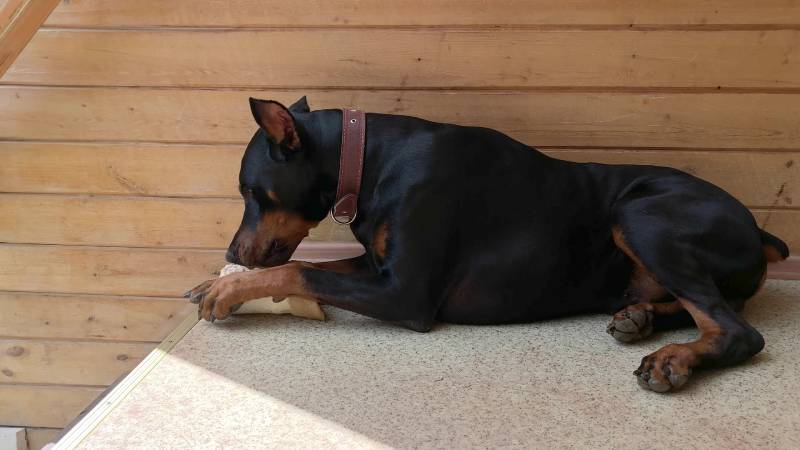
Risks of Dogs Eating Rib Bones
Although historically, dogs have always eaten and chewed on bones, there are many risks associated with this. Bones can easily splinter and cause damage to the mouth, throat, or anywhere along the lining of the gastrointestinal tract.
Bones are also a choking hazard, and they can become lodged in the dog’s throat or esophagus. Dogs often break or damage their teeth when chewing on bones, especially younger puppies with delicate teeth. Some dogs get longer pieces of bones stuck across their teeth on the roof of their mouth or along the floor of their mouth.
My Dog Has Eaten a Rib Bone, What Do I Do Now?
1. Ensure Your Dog Cannot Get Access to Any More Bones
If possible, remove the bone or fragments of bone from your dog’s mouth—be careful not to get bitten when doing this. Get rid of any other bits of bone lying around and ensure no one has dropped any bones or left bones in a bin bag where your dog can access it easily.
Make sure all trash cans are dog-proof.
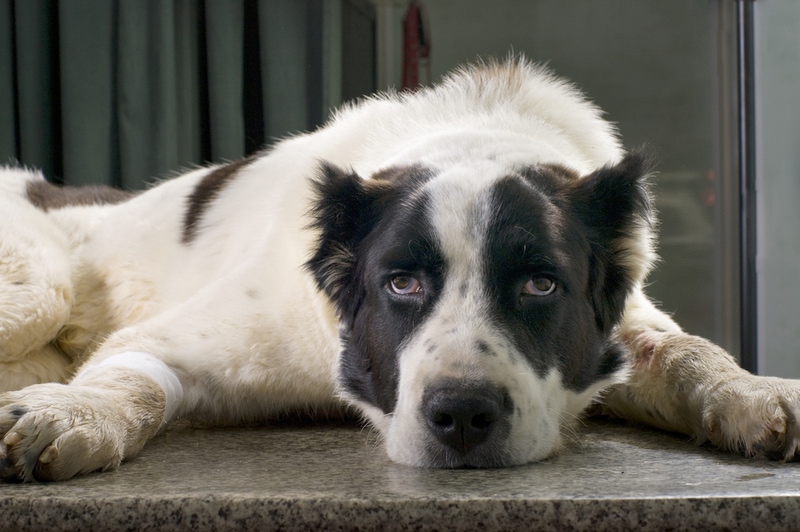
2. Call Your Vet Immediately
You or another adult should call a vet straight away. Your vet will need to ask you some questions to decide whether you need to be seen immediately. These sorts of questions will include:
- What sort of bone did your dog eat?
- How many bones did your dog eat?
- How much of the bone was eaten?
- Was it chewed up or swallowed whole?
- How big is your dog?
- What breed is your dog?
- How much does your dog weigh?
- Does your dog have any allergies?
- Does your dog have any underlying health issues?
3. Follow Your Vet’s Instructions
Do everything that your vet tells you to do. Your vet will usually ask you to come down to the hospital to have your dog examined. Make sure you get to them as soon as possible.
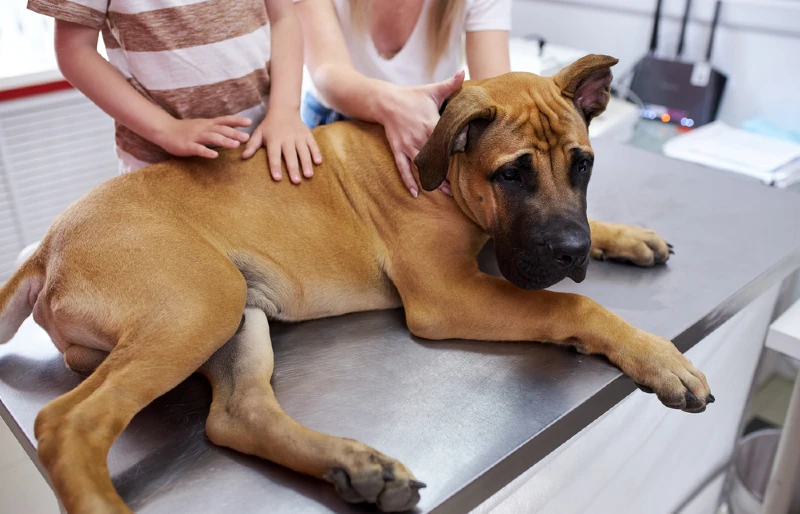
4. Don’t Try to Fix the Problem at Home
If your dog has been chewing bones, there may be bits stuck in their throat or lodged further down their gastrointestinal tract. If you try to make them vomit, you may cause more damage than good as sharp bits of bone may cause trauma on their way back up.
5. Keep a Close Eye on Your Dog
Keep a close eye on your dog and monitor them for any signs of distress or illness. They may suddenly start choking or struggling to breathe, and if this is the case, they may need your help. Don’t let them run off or go to hide anywhere as this will delay them getting appropriate veterinary attention.
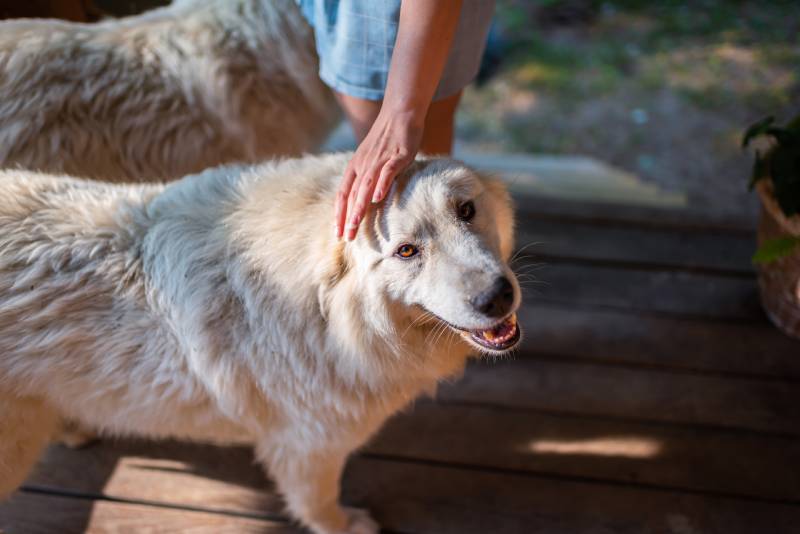
What Will Your Vet Do?
When you arrive at the vet, they will admit your dog and give them a full clinical exam. They will triage your dog and decide if they need any emergency treatment to stabilize them. If your dog is stable, they will continue to assess your dog and carry out some more tests. They will likely do blood tests and urinalysis, and may also do some X-rays to try and locate the rib bone.
Once they have assessed your dog and decided on the severity of the situation, options are likely to include one of the following:
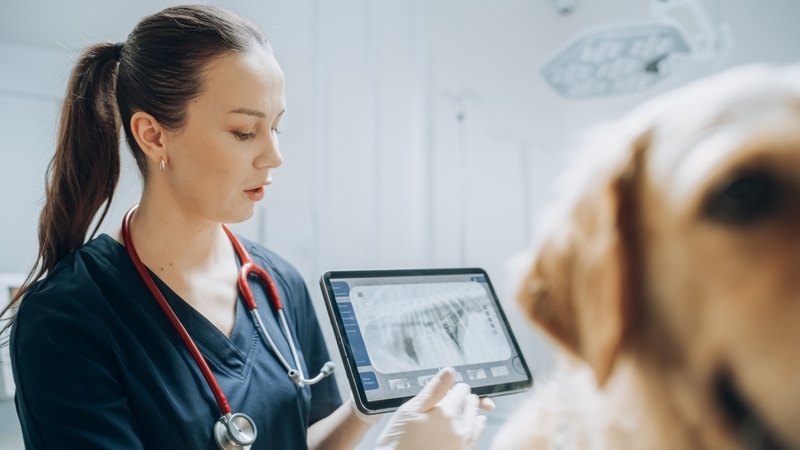
- Monitoring your dog: If your vet deems your dog to be stable and at low risk, they may admit your dog and decide to monitor them for any signs of a blockage. Alternatively, they may let you take your dog home for monitoring.
- Endoscopy: This is a non-surgical procedure used to examine the inside of the dog. It consists of a flexible tube with a camera on the end. The tube is inserted through the mouth and allows for visualization of the digestive tract. Another tube with a grabbing device on the end can be used to retrieve foreign bodies found. Depending on the size and location of the rib bone, it may not be appropriate to use—your vet will be able to advise you.
- Surgery: Surgical retrieval of the rib bone is often required, especially if it is causing a blockage or has perforated the gut. This requires a general anesthetic, and your dog may need to stay at the vet for a period of time while they recover.
How to Prevent Dogs from Eating Bones
It is so easy for a dog to sneak off with a discarded bone from a plate or the trash, which is why this problem is so common. There are a few things you can do to try to prevent this from happening:
- Always dispose of rib bones in a dog-proof trash can right away. Bin bags can easily be opened by an inquisitive dog and some dogs are very good at knocking over bins to be able to get access to their contents so extra care must always be taken.
- Supervise your dog at parties or barbeques where there will be lots of people and lots of opportunities for them to be fed or steal food.
- Advise anyone who has contact with your dog that they cannot have any bones to eat—ask them not to feed your dog any food from their plates.
- Never feed your dog from the table or give them human food to eat. Do not encourage them to beg for food, and do not let children feed your dog from the table.
- Don’t give your dog bones as a treat to chew.
Conclusion
Dogs are natural scavengers. They often act on their instincts and steal food they shouldn’t. Rib bones are especially attractive to them, and it is very common for dogs to eat whole bones. If this happens with your dog, contact your vet immediately. Eating a rib bone can cause serious health problems including choking, gastrointestinal blockage, and perforation, all of which can result in death.
Your vet will be able to assess your dog and give them the necessary treatment promptly, potentially saving their life.
Featured Image Credit: CeltStudio, Shutterstock





